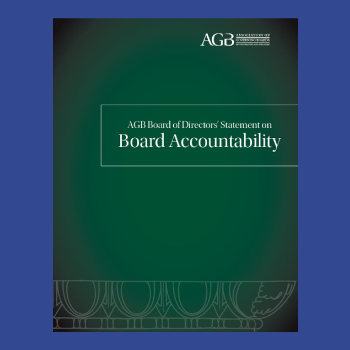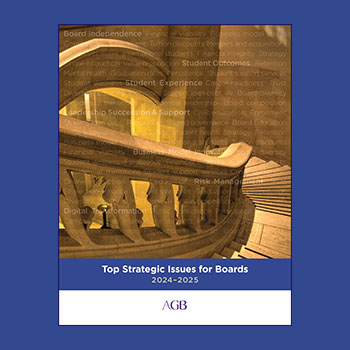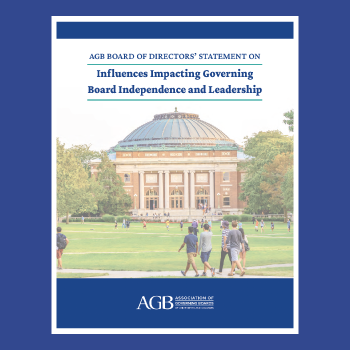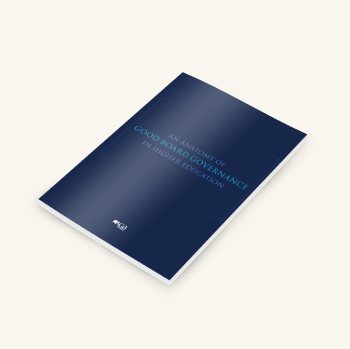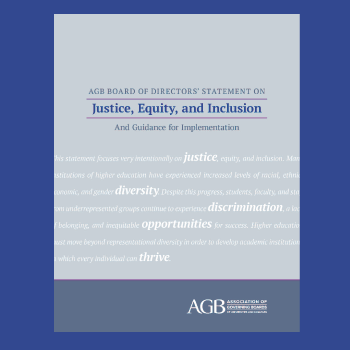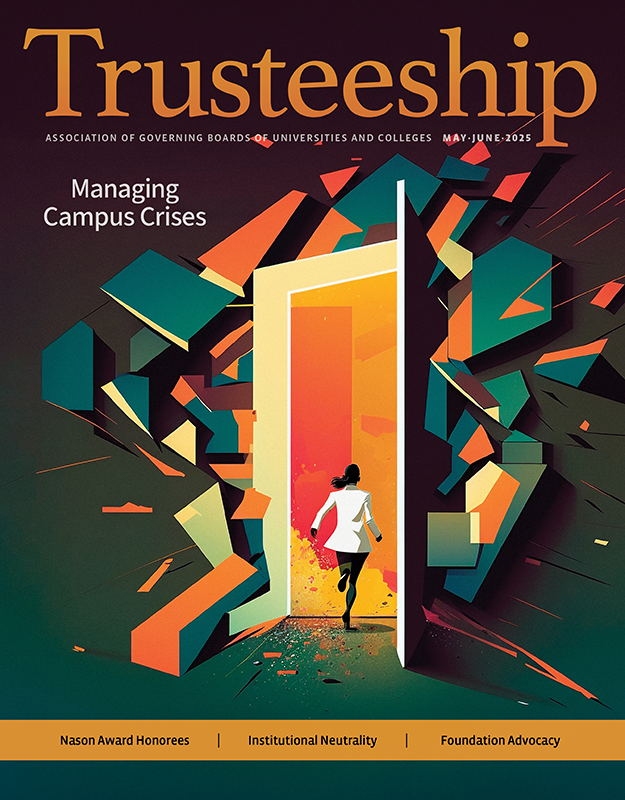Why this is important.
AGB successfully developed a deep understanding of the fundamental roles and responsibilities of governing boards through a century’s worth of research and direct engagement with governing boards and individual board members. As fiduciaries, board members are responsible for all aspects of the entity—the institution—they serve. This includes but is not limited to overseeing their institution’s mission, strategic planning, educational quality, and fiscal integrity. Fulfilling these essential responsibilities not only increases trustees’ sense of obligation as a board member, but also inspires governing boards to set high standards for the institution as a whole.
Source: Board Member Orientation by AGB
Questions for boards.
Click below to reveal key questions for your board to consider:
Board Role and Accountability
Consequential Questions:
- How can our board most effectively affirm its commitment to our basic roles and responsibilities?
- How can our board members maintain a proper balance between being fully informed and diligent in their service on the one hand and keeping the inherent ambiguities of trusteeship in perspective on the other?
- How can our board ensure that it retains appropriate distance and avoids the temptation to micromanage or involve itself unduly in judgments about specific educational programs?
- How can our board maintain the independence and objectivity of its judgment on critical issues that face the institution, even as it provides essential support to the administration and appropriately delegates academic and operational authority?
- How does our board keep itself accountable? Are our stakeholders effectively utilized in this process?
- Is our board committed to standards of fiscal integrity beyond those the law requires? When is the last time our board discussed this topic?
Source:
AGB Board of Directors’ Statement on Board Accountability, AGB 2007
Procedures and Policies
Consequential Questions:
- Are our board’s bylaws and policies regularly reviewed and up to date?
- Is a comprehensive board orientation program for new board members in place?
- How is the work of individual trustees and the board as a whole assessed?
- How can our board best achieve and maintain vital consensus? How should our board manage potentially disabling disagreements and dissension?
- How can our board most effectively achieve racial, ethnic, gender, geographic, vocational, and other forms of diversity, and how can we integrate the principles of justice, diversity, equity, and inclusion throughout the institution?
Source:
AGB Board of Directors’ Statement on Board Accountability, AGB 2007
Recommended resources.
We carefully curated these staff-picked resources for you:


